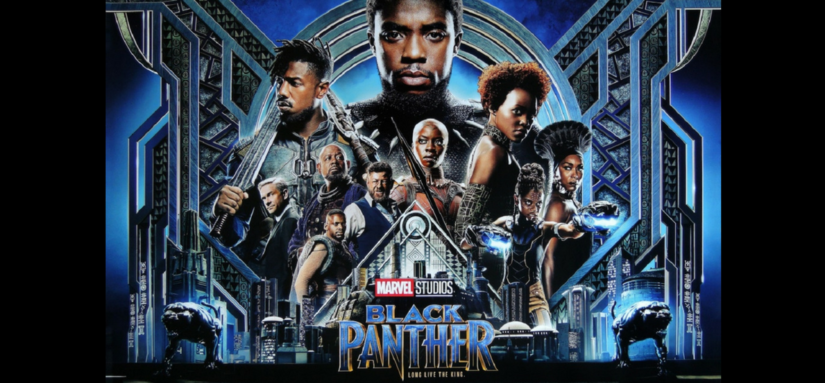After 10 years of The Great Marvel Studios Experiment, director Ryan Coogler has managed to break all-new ground with BLACK PANTHER, which opens up the Marvel Cinematic Universe to a brand-new world of exciting new characters and concepts, and does so in its own singular style. It really is remarkable.
In much the way that Jon Favreau’s IRON MAN and James Gunn’s GUARDIANS OF THE GALAXY refocused decades’ worth of comic-book stories into a more cohesive concept arguably greater than the sum of its parts, Coogler takes the work of Lee and Kirby, Thomas and Buscema, McGregor and Graham, Christopher Priest, Reginald Hudlin and many other PANTHER creators and weaves them into an enthralling mythology of Wakanda and its peoples and kings. Ryan Coogler’s Wakanda is the Wakanda of all of these creators and more, a wondrous vision of Afrofuturism that feels real in the way all of the best fiction is: it’s the world we want, even if it’s never really been.
In a lot of ways, the plot of BLACK PANTHER almost seems incidental: In the wake of the death of his father, T’Challa becomes king and struggles with both the weight of the crown and the proper role of his nation in the larger world, which has no idea of the genius, wealth and prosperity that lies in Wakanda, which has always wisely hidden its gifts and super-scientific achievements. That’s fine, though, because we’re given so many new characters to meet and enjoy, and learn how they relate to one another, it doesn’t need to be a twisting, serpentine plot like, say, CIVIL WAR; this film is about getting to know the Panther and his world, and that’s more than enough to keep the viewer occupied.
Along those lines, one very smart direction the film takes is that it is completely told from a Wakandan viewpoint. We don’t begin the story with an American outsider “discovering” and marveling at their scientific advancements, which would so often be the way into the story for most movies like this. Here, Wakandan superiority is a given from the first frame, so get with the program.
As for the cast, BLACK PANTHER is from top to bottom another triumph for Marvel Studios, with any number of these characters being interesting enough for their own movie, and I’m hoping we see many of them in future films. Chadwick Boseman’s T’Challa is even better here than in his debut in CIVIL WAR, with a confidence and cool that cements the character’s A-list status. Not that he felt like a second-stringer in CIVIL WAR, but when he appears again in future films alongside Evans’ Captain America and RDJ’s Tony Stark, he’ll feel like every inch their equal.
Other standouts include Danai Gurira as Okoye, leader of the Dora Milaje, Wakanda’s special forces who also serve as T’Challa’s bodyguards, and Letitia Wright as Shuri, T’Challa’s younger sister and chief of technology, who not only builds T’Challa’s gear and supervises all Wakandan tech, but isn’t averse to strapping on a pair of kickass blasters to defend her country. Martin Freeman adds just enough humor as CIA agent Everett Ross who ends up along for the ride, and Andy Serkis gives maybe his best “real-life,” non-motion-capture performance as the vicious and hilariously deranged vibranium poacher Ulysses Klaue. But the real surprise for me was Michael B. Jordan, who brings a depth of humanity to a completely unredeemable character in the villain of the piece, Erik “Killmonger” Stevens. It’s said that all the best villains don’t see themselves as villains, and Jordan really brings that quality here, with probably the most fully rounded antagonist role since Hiddleston’s Loki.
Clearly, you don’t need me to tell you to go see BLACK PANTHER, based on last weekend’s record-breaking box office. But if you think it’s just another superhero movie, think again. This one is something special.


Comments are closed.